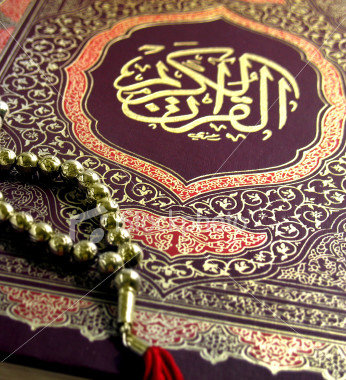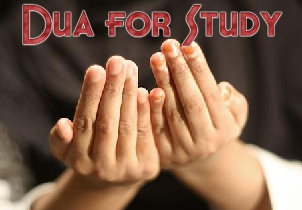Posts Tagged ‘Allah-The One God’
- In: All | Allah الله | Islam | Lectures | Video Lectures
- 1 Comment
He Who Has No One Has Allah — [Video Lecture]
Run time : 34:33
Lecture By : Sheikh Navaid Aziz
Our New Youtube Channel : http://www.youtube.com/user/VideosforIslam



Note:I’d love to see who visit my website,your views about website. Click here to leave your feedback.

Stay Connected With Free Updates
 |
 |
 |
If you cannot visit this site everyday and would like to receive our articles everyday via email, please click here and enter your email address in the new window.
PLEASE CHK YOUR EMAIL AFTER SUBMITTING EMAIL,YOU MUST CONFIRM SUBSCRIPTION ! |
![]()
- In: All | Allah الله | Islam | MC-Islam | MC-Quran | Miss-Conception
- 3 Comments
ALLAH — The Moon GOD ????????

From Christian Ph.D. Robert Morey
Quran proves – “Allah” is NOT a ‘moon god’:
“And from among His Signs are the night and the day, and the sun and the moon. Do not bow down (prostrate) to the sun nor to the moon, but only bow down (prostrate) to “Allah” Who created them, if you (really) worship Him.”
[Noble Quran 41:37]
The Christian acquaintance who sent me a copy of Morey’s booklet also sent me five questions related to this subject. I will attempt to answer them below:
Question 1:
What is the significance of the crescent moon in Islam?
Answer:
The Quran answers this question before you asked it. Read this verse:
“They ask you about the new moons. Say: These are signs to mark fixed periods of time for mankind and for the pilgrimage.” [Noble Quran 2:189]
Question 2:
Why does Islam follow a lunar calendar?
Answer: In both the Bible and the Quran religious festivals are regulated by the lunar calendar. Jews and Muslims have kept to these regulations which they believe to be from God. Why does Christianity follow a solar calendar?
Question 3:
Why is the feast of Ramadan marked by the appearance of the crescent moon?
Answer: I think you mean the fast of Ramadan. God commanded Muslims in the Quran to fast from dawn to sunset during the month called Ramadan (see Quran 2:185, 187). The beginning and end of the month is determined by the crescent (2:189) based on the instruction of God’s Messenger, on whom be peace.
Why this method and not another is not for us to say but for God and His Messenger to prescribe. However, I find it an efficient method. It is a universally applicable method, and it allows for Ramadan to move through all the seasons. This allows believers to have the pleasure of worshipping God by fasting in all the various seasons: one year in the summer, some years later in the winter.
Question 4:
Why does the Quran place the Sabians on the same level with Jews and Christians when scholars have clearly proven that the Sabians were involved in the moon cult?
Answer: I am not aware that the Quran has placed the Sabians on the same level with Jews and Christians. Perhaps you have in mind the following verse:
“Those who believe and those who are Jews and Christians and Sabians, whoever believes in “Allah” and the Last Day and do righteous good deeds shall have their reward with their Lord. On them shall be no fear, nor shall they grieve.”
[Noble Quran 2:62; also 5:69]
This verse, however, does not place the Sabians on the same level as the Jews and Christians except in a particular context. The verse speaks of four distinct communities, and offers all four the opportunity to fear not nor grieve if only they would believe in “Allah” and the Last Day and do right. The four communities are:
the Believers (i.e., the Muslims)
the Jews
the Christians
the Sabians
While they are all offered the same opportunity for improvement, nothing, is said in this verse about the validity of the existing faiths of these four communities. Otherwise the Jews and Christians who are criticized in the Quran for their deviations will not be placed on the same level with the believers. The matter becomes clear when you realize that believers here does not mean saved persons but those who ostensibly belong to the community of Muslims. They, as well as the other three groups, must do the following to be saved: believe in “Allah”, believe in the Last Day, and do right. Doing right, according to the Quran, includes following every teaching of Muhammad.
Question 5:
Did the Meccans worship the true God since they recognized “Allah”? Was “Allah” one of the gods of the Ka’bah?
And if so, where did the Meccans derive the recognition and the name of “Allah” from?
Answer: First, “Allah” was not one of the 360 idols which were in the Ka’bah, although Morey has claimed this without evidence. When the Prophet Muhammad (peace be upon him) entered Makkah victorious he went into the Ka’bah and broke the idols therein.
Second, the word “Allah” has been used all along for the name of “God” in the Arabic Bible for Jews and Christians alike. The proof is easy to verify; simple go to any hotel or motel on the earth and look in the drawer next to the bed and take out the complimentary Bible, placed there by the Giddeons and then look on page 5 or 6 where they list the examples of translations they have made into other languages. The second example given is for Arabic speakers. The verse is from the Gospel of John, chapter 3, verse 16. Everyone knows this one; “For God so loved the world…” and the word in Arabic for “God” is “Allah.” Then if you have a Bible in Arabic, look on page one in Genesis, and you will find the word “Allah” 17 times.
Next, the word for “God” to the Arabs, ever since the time of Abraham (peace be upon him) has been “Allah” and He is to them, the Lord of the Ka’bah (the black box in the center of the Holy Sanctuary in Makkah). He was the unseen God whom they would call upon when in distress. Yes, they worshipped the true God but their worship was not purely for Him. They also worshipped other gods thinking that they would act as intermediaries between them and the true God Allah.
The Arabs know of Allah because Abraham visited Makkah and together with his son Ishmael laid the foundation of the Ka’bah. The descendants of Ishmael retained some of the worship rites and beliefs from Abraham. This included their knowledge of the true God Allah.
Elsewhere we have shown conclusively that the true god, “El” of the Bible is the same as “Allah” of the Quran.


 [post this Article on your facebook wall,and share with friends.click above “Share” button …]
[post this Article on your facebook wall,and share with friends.click above “Share” button …]


[where ever you post,please add source link.either in website or even in facebook NOTE…please….spread the link of site..]

![]() Note:I’d love to see who visit my website,your views about website. Click here to leave your feedback.
Note:I’d love to see who visit my website,your views about website. Click here to leave your feedback.

- In: All | Allah الله | Islam | Mohammad | muhammad | Prophet Muhammad [pbuh] | Prophets | Quran
- 12 Comments
Understanding Allah, Jesus, and the Holy Spirit
Question:
Please explain clearly about these:
1. Who is Allah?
2. Who is God?
3. Who is Jesus?
4. Can I see all of them?
5. Whether they are all the same, since we say that Jesus, God and the Holy Spirit are the same.
6. Suppose I want to pray, how should I start praying?
Answer
Thank you for your questions. I would like to start out by saying that Muslims believe that all prophets of God preached the same simple truth of the One Sovereign God.
Who Is Allah? Who Is God?
Allah is God. The name Allah is the Arabic word for God. More precisely, it is the One Eternal Creator, Lord of the whole universe. It is the same Arabic name for God that is used in the Arabic Bible.
It is pronounced almost the same in other Semitic languages: “Eloha” in Hebrew, and “Allaha” in Aramaic. According to Jesus (peace be upon him), God is One, with no partner whatsoever. I quote the following verses from the Bible:
Jesus said to him, “Away from me, Satan! For it is written: ‘Worship the Lord your God, and him only.’” (Matthew 4:10)
“Well said, teacher,” the man replied. “You are right in saying that God is one and there is no other but him.” (Mark 12:32)
“The most important one,” answered Jesus, “is this: ‘Hear, O Israel, the Lord our God, the Lord is one.’” (Mark 12:29)
Who Is Jesus?
Jesus is one of a long string of prophets of Allah sent to all nations throughout history, starting from Adam, who received the first guidance from Allah, to the final one, Prophet Muhammad (peace be upon them all).
According to the Bible, Jesus was sent particularly to the Israelites, to set them back on the proper track of Moses. The Gospels record these words of Jesus:
“I am not sent but unto the lost sheep of the house of Israel.” (Matthew 15:24)
“Think not that I am come to destroy the law or the prophets: I am not come to destroy, but to fulfill. For verily I say unto you: ‘Till heaven and earth pass, one jot or one tittle shall in no wise pass from the law, till all be fulfilled.’” (Matthew 5:17-18)
The Qur’an, which Muslims consider the direct revelation says what means:
*{The Messiah (himself) said: O Children of Israel, worship Allah, my Lord and your Lord. Lo! whoso ascribeth partners unto Allah, for him Allah hath forbidden Paradise. His abode is the Fire. For evil-doers there will be no helpers.}* (Al-Ma’idah 5:72)
Jesus was a full human Prophet of God, as he emphatically declared:
“As it is, you are determined to kill me, a man who has told you the truth that I heard from God.” (John 8:40)
“What things?” he asked. “About Jesus of Nazareth,” they replied. “He was a prophet, powerful in word and deed before God and all the people.” (Luke 24:19)
Again, the Qur’an also affirms Jesus’s prophethood:
*{And when Jesus son of Mary said: O Children of Israel! Lo! I am the messenger of Allah unto you, confirming that which was (revealed) before me in the Torah}* (As-Saff 61:6)
In all aspects, the Gospels portray him as a human who was born and circumcised (Luke 2:5-7, 21, 40, 52, 11:27); who suffered hunger and thirst (Matthew 4:2, 11:19, 21:18); who got tired and slept like any human being (Matthew 8:20, 24-25, Luke 8:23, Mark 4:38, John 4:6); who was subject to human feelings of fear, astonishment, and sadness (Matthew 26:37, Mark 14:33-34, John 11:33, 35, 38); and who prayed to his Creator like any human believer does (Mark 1:35, 14:35, Luke 5:16, 6:12).
Logically speaking, having no father does not mean he was the son of God. Adam had neither father nor mother, yet both Adam and Jesus are bondsmen of Allah created by His will and power, by His word “Be” — Adam from earthly dust, and Jesus in the womb of Virgin Mary.
This is precisely and unequivocally defined in the Qur’an as follows:
*{The similitude of Jesus before Allah is as that of Adam; He created him from dust, then said to him: “Be”. And he was.}* (Aal `Imran 3:59)
So neither Jesus nor Adam is a son of God. References to Jesus in the Bible as son of God should not be taken in the literal sense, rather in the metaphoric sense of affection and nearness to God. Jesus himself affirms that we are all “sons” of God in this sense:
“Blessed are the peacemakers, for they will be called sons of God.” (Matthew 5:9)
“In the same way, let your light shine before men, that they may see your good deeds and praise your Father in heaven.” (Matthew 5:16)
Similar references to human beings as “sons of God” are also used in the Old Testament:
“You are the children of the Lord your God.” (Deuteronomy 14:1)
Finally, in his own words, Jesus declared himself as the Son of Man:
Jesus replied, “Foxes have holes and birds of the air have nests, but the Son of Man has no place to lay his head.” (Matthew 8:20)
“Just as Moses lifted up the snake in the desert, so the Son of Man must be lifted up.” (John 3:14)
Can We See God?
Our human capabilities are limited by the nature of our senses: vision in a certain wavelength range (4 to 7 X10-7 meters), hearing in a certain frequency range (2.500 to 4,000 cycles per second). Even the power of our instruments, however advanced, is limited in two ways:
■scale: by the huge universal dimensions in light years
■nature: to our detectable electromagnetic wave systems. So we cannot see or detect anything different from or beyond (in nature, time, or space) these systems: neither the angels nor any non-earthly being, nor God the Creator and Dominator of all His creation.
This is affirmed both in the Qur’an and in the Bible:
*{No vision can grasp Him, but His grasp is over all vision: He is above all comprehension, yet is acquainted with all things.}* (Al-An`am 6:103)
“Ye have neither heard his voice at any time, nor seen his shape.” (John 5:37)
Are God, Jesus, and Holy Spirit the Same?
First: who is the Holy Spirit? A careful reading of the Gospels clarifies that the Holy Spirit is the Angel Gabriel.
Compare the two narrations of Matthew and Luke:
Now the birth of Jesus Christ was on this wise: When as his mother Mary was espoused to Joseph, before they came together, she was found with child of the Holy Ghost. (Matthew 1:18)
And in the sixth month the angel Gabriel was sent from God unto a city of Galilee, named Nazareth, to a virgin espoused to a man whose name was Joseph, of the house of David; and the virgin’s name was Mary. (Luke 1:26-27).
This accords with the Qur’an:
*{Then We sent her our angel [literally, spirit], and he appeared before her as a man in all respects. … He [the angel] said: “Nay, I am only a messenger from thy Lord, (to announce) to thee the gift of a holy son.”}* (Maryam 19:17,19)
So God the Lord, Jesus the human prophet, and the Holy Spirit Gabriel are each separate. The doctrine of the Trinity was never preached by Jesus, nor by his followers for three centuries. The word ”trinity” is nowhere in the Bible. The whole concept was derived from the words of John, who never met Jesus.
The myth of trinity gradually crept into Christianity, influenced by pagan beliefs and Greek mythology, and was adopted by Council of Nicaea in 325 CE.
“How Can I Start Praying?”
The answer to this, James, really depends on you and the choices you make in your life. If you fully accept Islam, that is, belief in the One God, and the message revealed to Prophet Muhammad through the miraculous word of God, the Qur’an, this would be your first honorable step to the truth of Islam.
The following steps are straightforward, and can be taken without any intermediary or clergy. It is something between you and your Creator, yet in the way He ordained. You can find the necessary details in the links provided below; and you could better still refer to a trustworthy Islamic Center for guidance and support.
Best wishes for you on this most blessed trip to the pure Divine Truth.


 [post this Article on your facebook wall,and share with friends.click above “Share” button …]
[post this Article on your facebook wall,and share with friends.click above “Share” button …]


[where ever you post,please add source link.either in website or even in facebook NOTE…please….spread the link of site..]

![]() Note:I’d love to see who visit my website,your views about website. Click here to leave your feedback.
Note:I’d love to see who visit my website,your views about website. Click here to leave your feedback.

- In: All | Allah الله | Islam | Special Islamic Reminders
- 1 Comment
Don’t attach your heart to other than Allah

The noblest branches of knowledge are those that bring you close to the Creator and help you to be pleasing to Him.
Imam Ibn Hazm
Do not attach your heart other than Allah by Ibn Taymiyyah:
Imam ibn Taymiyyah rahimahullah said:
Anyone whose heart is attached to the creation, hoping for someone from the creation to help him or provide for him or guide him, then his heart submits to them and to the degree that his heart submits to them, he becomes their slave. This holds true, even if he is outwardly a ruler or guardian over those whom he treats as masters. The wise one looks at realities and not at appearances. So if a man’s heart is attached to his wife, even though that is permissible, his heart remains a prisoner to her and she may rule over him as she pleases – though outwardly he is her master and her husband. In reality, he is her prisoner and her slave, especially if she knows how much he is in need of her and how much he is in love with her and how much he feels she cannot be replaced by anyone else. At that point, she rules over him as the tyrant master rules over his subjugated slave, who cannot escape of go free. Indeed for the heart to be taken as a prisoner is a much greater matter than for the body to be taken as a slave or prisoner. Even a body that is a slave can have in it a serene and peaceful and happy heart. As for the heart that is a slave to other than Allah (the Exalted), then that is true humiliation, imprisonment and slavery.
“It is a duty of a Muslim who has anything to bequeath not to let two nights pass without including it in his will.” (Bukhari)

 [post this Article on your facebook wall,and share with friends.click above “Share” button …]
[post this Article on your facebook wall,and share with friends.click above “Share” button …]


[where ever you post,please add source link.either in website or even in facebook NOTE…please….spread the link of site..]

![]() Note:I’d love to see who visit my website,your views about website. Click here to leave your feedback.
Note:I’d love to see who visit my website,your views about website. Click here to leave your feedback.














































 Oh Allah,Please Forgive me
Oh Allah,Please Forgive me Ex-Christians-Now Muslim,Alhamdulillah
Ex-Christians-Now Muslim,Alhamdulillah I Love My Prophet Muhammad s.a.w
I Love My Prophet Muhammad s.a.w
















![Fake Grave of Prophet Muhammad [pbuh]](https://islamgreatreligion.files.wordpress.com/2009/07/prophet_muhammad_pbuh_tomb4.jpg)


















Recent Comments